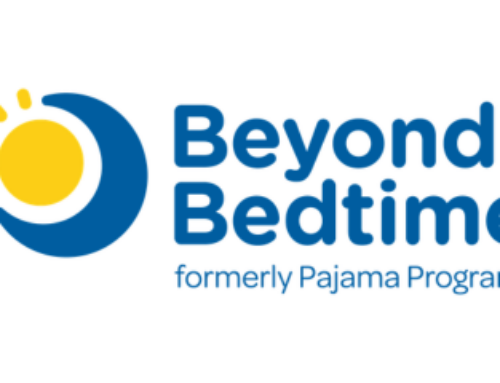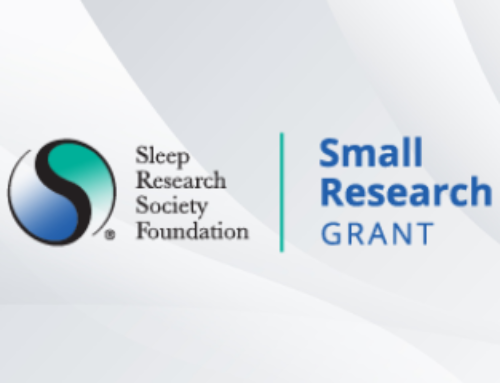We are delighted to announce a $350,000 investment in nine projects for cycle 1 of our 2024 Career Development Grants.
 Focused Projects Grant for Junior Investigators
Focused Projects Grant for Junior Investigators
Rebecca Campbell, PhD
University of Texas Health Science Center at San Antonio
Reliable Assessment of Sleep Disorders Using the Structured Clinical Interview of Sleep Disorders-Revised (SCISD-R)
PROJECT DESCRIPTION
While self-report screening measures for sleep disorders are abundant in the literature, a reliable, diagnostic tool is necessary for confidence in clinical sleep research as well as accurate and efficient triage and treatment of patients with sleep challenges. The
Structured Clinical Interview for Sleep Disorders (SCISD) was psychometrically validated in 2018 based on proposed DSM-5 criteria to meet this need. To maintain its utility, the SCISD-Revised (SCISD-R) was introduced to be consistent with the most up-to-date recommendations. The study aims to evaluate the psychometric properties of the SCISD-R using interviews collected from an ongoing study.
IMPACT
In addition to building psychometric support for the SCISD-R, this project will be an opportunity for Dr. Campbell to develop proficiencies in 1) psychometric analyses, 2) R, a statistical tool, and 3) oral presentations and writing, with the long-term goal of obtaining external funding and a tenure-track research position at an academic institution. The project is an essential steppingstone in Dr. Campbell’s program of research. Her next steps will be to apply these skills in the application and obtainment of a K award or equivalent.
 Focused Projects Grant for Junior Investigators
Focused Projects Grant for Junior Investigators
Naomi L. Gaggi, PhD
New York University Grossman School of Medicine
Transcranial Photobiomodulation as a Potential Modulator for Sleepiness
PROJECT DESCRIPTION
This project aims to explore the effect of a neuromodulation strategy, transcranial photobiomodulation (t-PBM), on sleepiness in obstructive sleep apnea (OSA) who are adherent to positive airway pressure (PAP) treatment, yet experience residual sleepiness.
Using advanced magnetic resonance imaging techniques, we aim to elucidate the neural mechanisms of t-PBM and its ability to mitigate sleepiness in OSA. We expect that t-PBM will decrease sleepiness in OSA, related to increases in brain blood flow after
treatment. The outcome of this project can suggest a novel technique to decrease sleepiness and increase brain blood flow, serving as a potential modulator of sleepiness in OSA. The AASM funding will serve as a critical opportunity to fund pilot data for utilizing t-
PBM in OSA.
IMPACT
The outcome of this project can suggest a novel technique to decrease sleepiness and increase brain blood flow, serving as a potential modulator of sleepiness in OSA. The AASM funding will serve as a critical opportunity to fund pilot data for utilizing tPBM in OSA.
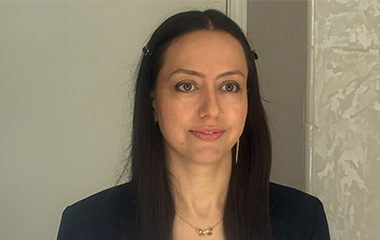 Focused Projects Grant for Junior Investigators
Focused Projects Grant for Junior Investigators
Neda Esmaeili, PhD
Brigham and Women Hospital, Harvard Medical School
Association of Respiratory-Related Leg Movements and Adverse Cardiovascular Outcomes in Sleep Apnea
PROJECT DESCRIPTION
Cardiac and sympathetic activation is significantly greater when respiratory events are associated with leg movement (i.e., respiratory-related leg movement, RRLM). This project will address a critical gap in understanding the relationship between RRLMs and risk of cardiovascular disease (CVD) and mortality in obstructive sleep apnea (OSA). The overall objective of this proposal is to assess the relationship between an index of respiratory related leg movement (RRLMI) and adverse outcomes in patients with obstructive sleep apnea (OSA) with a focus on cardiovascular disease (CVD).
IMPACT
We try to understand the role of motor phenomena (e.g. leg movements) in predicting adverse outcomes in individuals with obstructive sleep apnea (OSA). This grant perfectly aligns with my career goals, providing crucial support to jumpstart my research career, obtain skills and experience in the design and conduct of related clinical studies and expand knowledge about physiology of OSA.
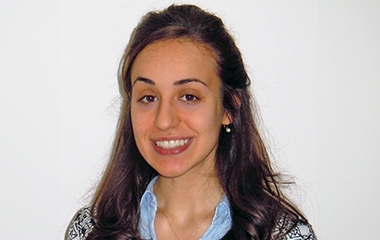 Focused Projects Grant for Junior Investigators: Management and Treatment of Sleep Apnea
Focused Projects Grant for Junior Investigators: Management and Treatment of Sleep Apnea
Vanessa Martelli, MD, MSc
McMaster University
Mapping an Obstructive Sleep Apnea Specific Quality of Life Questionnaire to a Preference-Based Health Utility Instrument for Health Economic Analyses
This grant was made possible by ResMed
PROJECT DESCRIPTION
New obstructive sleep apnea (OSA) therapies are compared to existing treatments in terms of incremental cost vs. benefit, measured in quality-adjusted life years (QALYs). This study aims to develop a method to calculate QALYs using an OSA-specific quality of life questionnaire, via an indirect approach called mapping. We hypothesize that a disease-specific measure of quality of life is more sensitive compared to the current standard in health economic evaluations, which consists of using generic instruments.
IMPACT
This research project addresses a fundamental principle of cost-utility analysis: the measurement of quality-adjusted life years and why generic preference-based health utility instruments may be less sensitive than disease-specific measures. Through my research supported by the AASM Foundation, I aim to improve the accuracy of the data used in health technology assessment (HTA). Ongoing and improved HTA is required to lobby health policymakers for a more equitable model for sleep-related care delivery in certain jurisdictions.
 Diversity Supplement Grant
Diversity Supplement Grant
Horacio Romero Castillo, MA
Icahn School of Medicine at Mount Sinai
Associations Between Chronic Rhinosinusitis and Sleep Duration and Regularity in World Trade Center Exposed Responders
PROJECT DESCRIPTION
Forty-three point five percent of World Trade Center responders demonstrate symptoms of chronic rhinosinusitis (CRS). Responders with CRS symptoms report shorter sleep duration based on subjective measures impacted by reporting bias. To obtain objective measures, we use 2 weeks of actigraphy to determine sleep duration, its night-to-night variability, and sleep-wake timing regularity. We expect that WTC responders with CRS symptoms will have shorter and more variable sleep duration and decreased sleep-wake timing regularity.
IMPACT
Our study will highlight if there is a true reduction in sleep duration in patients with CRS, if their sleep duration is more variable, and if their sleep-wake timing is more irregular compared to those without CRS. My career goal is to become an otolaryngologist surgeon-scientist with expertise in sleep disorders. AASM Foundation funding is vital to increasing my exposure to hands-on clinical research with an established team of sleep research experts and otolaryngologists.
 Physician Scientist Training Grant
Physician Scientist Training Grant
Yi Cai, MD
Columbia University
The Effect of Hypoglossal Nerve Stimulation on Energy Balance and Insulin Resistance in Obstructive Sleep Apnea
PROJECT DESCRIPTION
Obstructive sleep apnea (OSA) is a highly prevalent condition with major cardiometabolic sequelae. Hypoglossal nerve stimulator (HGNS) is a surgically implanted device for OSA with long-term effectiveness and high therapy adherence. However, literature is
lacking on the cardiometabolic outcomes of HGNS. Our randomized, within-subject crossover trial will examine the effects of HGNS on energy balance and insulin resistance. The results bear important implications for a patient population vulnerable to high cardiometabolic risk.
IMPACT
Through this training grant, I hope to successfully execute a randomized crossover HGNS trial as the study PI and learn how to measure metabolic outcomes such as energy expenditure, dietary intake, and insulin resistance. I also aim to further develop my statistical skills and generate preliminary data for an NIH K23 grant application. For these reasons, AASM Foundation funding is pivotal to my ultimate goal of becoming an independent OSA surgeon-scientist.
 Physician Scientist Training Grant
Physician Scientist Training Grant
Sullafa Kadura, MD
University of Rochester Medical Center
HER-Derived Metrics and Clinical Implications
PROJECT DESCRIPTION
Sleep is vital for recovery, yet hospitals neglect sleep. This study addresses the challenge of measuring and mitigating sleep disruptions in hospitalized patients by proposing surrogate sleep metrics derived from electronic health record documentation. Methods include analyzing objective sleep data and assessing associations between EHR-derived sleep variables, around-the-clock order defaults, and clinical outcomes. Expected outcomes include an improved understanding of inpatient sleep and potential interventions to enhance sleep quality, benefiting patient outcomes and healthcare practices.
IMPACT
From this project, I hope to gain insights into the impact of hospital activities on inpatient sleep and identify modifiable overnight hospital practices. This AASM Foundation funding will support my career trajectory by enabling me to develop clinical decision support to safely decrease unnecessary overnight disruptions associated with electronic health record orders.
 Bridge to Success Grant for Early Career Investigators
Bridge to Success Grant for Early Career Investigators
Amy Poe, PhD
University of Pennsylvania
Mechanisms for Emergence of Rhythmic Behaviors inn Drosophila Melanogaster
PROJECT DESCRIPTION
Disruptions in circadian rhythms during human development are a common co-morbidity in neurodevelopmental disorders. However, little is known about how circadian sleep patterns first emerge. I hypothesize that the emergence of rhythmic behaviors
is intimately tied to metabolic state. I will use Drosophila melanogaster to investigate the link between circadian sleep pattern emergence and metabolic state. This will provide insight into how developing circuits integrate metabolic cues to drive the
emergence of rhythmic behavior.
IMPACT
Completion of the project will generate new areas of investigation on the role of early life sleep circuitry in adult behaviors and how metabolic state influences sleep-circadian circuit development. Broadly, the proposed work will answer questions about how sleep wake rhythms are regulated across the lifespan. Support from AASM at this critical career juncture will allow me to establish my own research program focusing on the mechanisms regulating behavioral rhythms in Drosophila.
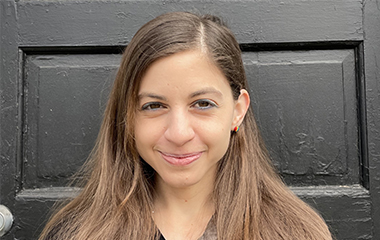 Bridge to Success Grant for Early Career Investigators
Bridge to Success Grant for Early Career Investigators
Gina Mason, MA, PhD
Emma Pendleton Bradley Hospital
Sleep Disruption in New Parents: Associations with Socioemotional Brain Function, Mood, and Infant-Focused Dyadic Behavior
PROJECT DESCRIPTION
For new parents, poor sleep predicts perinatal mood and anxiety disorder (PMAD) risk. PMADs consequently influence parenting; however, the neural mechanisms linking sleep, PMADs, and parenting are unknown. Our project will estimate the sleep of birthing parents and their 5-6-month-olds using week-long actigraphy/report, then assess PMAD symptoms, parent brain function (fMRI), and parenting behavior/infant development. We hypothesize that sleep impacts both PMADs and parenting by altering socioemotional neurobiology, thus being a modifiable early intervention target.
IMPACT
Through this project, I hope to identify neural processes underlying associations between parent sleep, mental health, and outcome-relevant differences in parenting behavior. Investigating relations between sleep and outcomes spanning multiple levels, this project can inform sleep-focused interventions for both parent and child health. By providing training and research funding, the AASMF Bridge will support revision of my training goals for my NIMH K01 resubmission, and yield a publication crucial for future funding and career opportunities.


